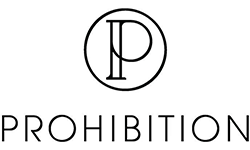with Brian Demers, COO of PROHIBITION.
30 years ago, Prohibition started out as a table in a flea market, later growing into 8 stores called High Times. Decades later and still headed by the original founder, Prohibition has become the industry leader.
In 2014, the year that Demers joined the company, they rebranded, renovated and created a singular vision. Dropping from the original 8 headshops, 5 of the stores remained with existing owners and were updated to the new wave “smoking accessory “model. This new model not only added structure but also offered an alternative to the traditional franchise format to make it truly unique in the industry. In addition opening new stores , Prohibition also converted the headshops that were selling largely cannabis-based paraphernalia into the newer, more focused smoking accessory model that they are today. With an experienced team, a solid business model and 22 locations (and growing), Prohibition is now Canada’s biggest player in smoking accessories.
Apart from the conversion to the new model, what has made them so successful? “We’re in it for the long haul”, explains Demers. “We’ve created our model to adapt to a wider demographic. In 2015 we got into shopping centres which was unheard of. We’re able to do it because of the way that we look and the way that we operate”.
Prohibition Accessories stores have a clean and professional look and tight controls which make them a great fit for malls and other non-traditional locations for smoking accessory stores. Age limits are strictly enforced by checking ID for anyone under 25 with reminders everywhere for the staff. Staff re-agrees to enforce age limits each shift, has managers available to contact at any time should they not be sure, and there are even secret shoppers in place to ensure that there are no underage sales. Stores are welcoming and modern and boast a vast array of everything from t shirts, cigars, hookahs and e-cigarette equipment to general smoking accessories. They pride themselves on customer service and product knowledge so are a welcome addition to many shopping centres and as partners in non-traditional locations.
Looking forward, Demers notes that although cannabis accessories are just one of many segments of their broad product offering, legalization has opened demand, allowing Prohibition to create more varied retail formats. These include expanded footprints for larger stores as well as express concepts which are about half the size of a boutique or smaller. Express stores can be located within other stores, connected to gas stations or stand-alone. Some do the same volume of sales as a full-sized store with lower costs so have become very successful.
Now expanding outside of the original Quebec market which has Canada’s most restrictive cannabis laws, Demers understands the unique markets across the country and how to adapt to them.
Outside of Quebec each province has their own rules and requirements. Demers stays on top of all of current legislation and market information to ensure measured growth and the success of Prohibition franchised units. Working with Canada’s largest retail real estate brand, Oberfeld Snowcap, to secure locations has been a great fit. “They deal with big brands, have excellent contacts across the country and are key partners and ambassadors when talking to landlords” says Demers. Utilizing the years of experience of the Prohibition team and their market leading real estate partners to determine the right location for the business and then provide the structure and support needed to drive the success of the brand and the individual franchise’s.
As a testament to the success of Prohibition, 2 of the 3 original High Times store owners that left the business with the 2014 rebranding have returned, making 7 of the 8 original store owners amongst the 22 Prohibition Accessories franchisees today. Several new turnkey boutiques are due to open soon. Demers also notes that the head shop model that they converted had a customer base of largely 18-24 year-old males. Prohibition’s current customer base now ranges from 18-70 years old and is equally split between men and women, denoting a much broader and more dedicated long-term client base.
Still remembering their humble beginnings while moving forward into their current and future franchise expansion, Demers’s final comment on the success of the Prohibition Accessories opportunity? “Nobody does it the way we do.”


